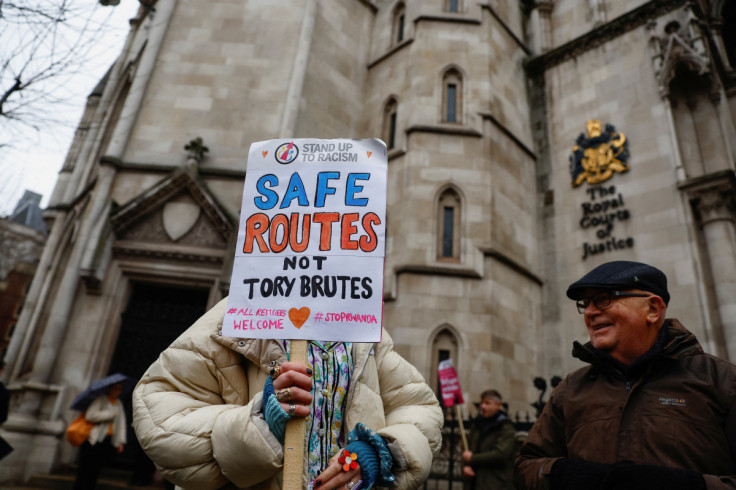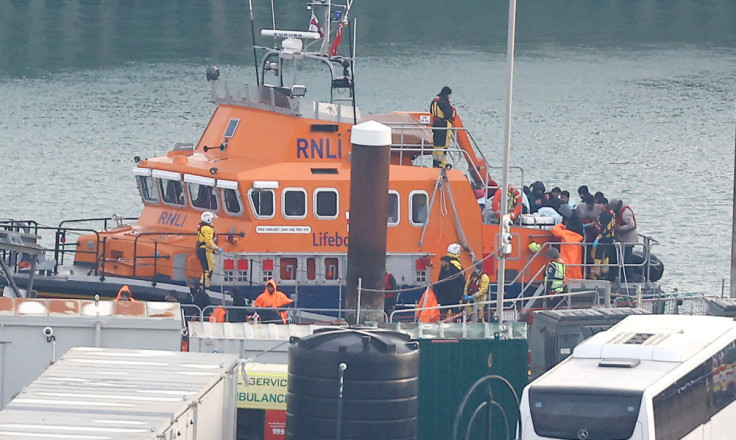UK's Rwanda asylum seeker deportation plan is lawful, court rules
Britain's plan to send migrants to Rwanda is lawful, London's High Court ruled on Monday, in a victory for Prime Minister Rishi Sunak who has made a high-stakes political promise to tackle the record number of migrants arriving in small boats.

Britain's plan to send migrants to Rwanda is lawful, London's High Court ruled on Monday, in a victory for Prime Minister Rishi Sunak who has made a high-stakes political promise to tackle the record number of migrants arriving in small boats.
The policy, which was announced in April, would involve Britain sending tens of thousands of migrants who arrive on its shores more than 4,000 miles away (6,400 km) to Rwanda.
Announcing the court's decision, judges Clive Lewis and Jonathan Swift said it was lawful for Britain to make arrangements with the Rwanda government to send asylum seekers to the country for their asylum claims to be determined there.
"The relocation of asylum seekers to Rwanda is consistent with the Refugee Convention and with the statutory and other legal obligations on the government," the judges said.
The prime minister is under growing pressure from his own members of parliament and the public to deal with the arrivals.
Figures show more than 40,000 - a record number - have come from France this year, many having made the journey from Afghanistan, Iran or other countries suffering war to travel across Europe and on to Britain to seek asylum.
Over the last decade migration has often dominated Britain's political discourse and is likely to feature heavily in the campaign for the next national election, expected to take place in 2024.
In one of his first major policy announcements, Sunak set out a strategy to clamp down on illegal immigration and said he wanted to restart the flights to Rwanda despite opposition from lawmakers in all the main political parties, the United Nations and even King Charles.
PARTIAL VICTORY
After the ruling, Britain's interior minister, Suella Braverman, said the government's focus is now on proceeding with the deportation policy as soon as possible and it was ready to defend against any further legal challenges.
Yolande Makolo, a spokeswoman for the Rwandan government, welcomed the court's decision, and said her country is ready to offer migrants the chance to build a new life.
The first planned deportation flight to Rwanda was blocked in June by a last-minute injunction granted by the European Court of Human Rights (ECHR) and the strategy's lawfulness was subsequently challenged at London's High Court.
Lawyers representing asylum seekers - from Syria, Iraq and Iran, as well as Albania and Vietnam - challenged the Rwanda policy at a hearing this year, alongside campaign groups Detention Action, Care4Calais and Asylum Aid.
The government victory will not mean flights can take off straight away because there may be further appeals in the British courts and the ECHR injunction imposed during the summer prevents any immediate deportations until the conclusion of legal action in the United Kingdom.
In a partial win for the claimants, the judges said the government must consider properly the circumstances of each individual claimant and referred them back to be reconsidered.
The judges said a further hearing will take place on Jan. 16 to determine any applications for permission to appeal against the court's decision.
Toufique Hossain, a lawyer who represented six of the eight asylum seekers, said they are considering their next steps.
"The court has made it very clear that the (Home Secretary's) approach to individual decisions has been unlawful and they need to review that."


Copyright Thomson Reuters. All rights reserved.




















